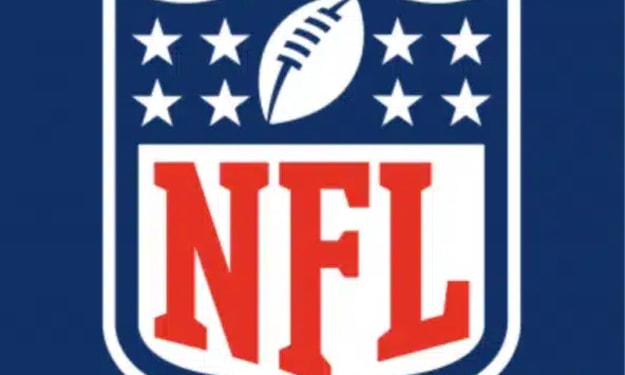Are Superteams Good for Sports?
From a Fan's Perspective

Sport produces two types of fans. The casual fan who will take in a game for leisure or simply the aesthetic of the sport. And then you have the die-hard. The die-hard is there week in and week out. They have jerseys, know the players' origin stories, and let them tell that they could run their organization better than management via their fantasy team. Super teams for both sets of fans have differing consequences. On the one hand, the casual fan who is only here to be entertained enjoys the dominance that the Golden State Warriors bring to the table. The die-hard outside of Oakland, of course, hates this scenario. Parity in sport has always been ideal to maximize interest and so profits. The more teams with a realistic chance to reach the pinnacle means a healthy league and in turn a profitable one. While the notion of multiple Hall of Famers joining forces is not new, there is certainly a trend.
The NBA and NFL as examples are billion-dollar industries with a monopoly on viewership. They also have very differing ways of getting there. In comparison, both sports have a redistribution of resources via free agency and the salary cap and both have the star power that carries the sport. In 2010, Lebron James left Cleveland via free agency and joined Chris Bosh and Dwyane Wade in Miami, creating the NBA’s first major power move on behalf of one player since Shaquille O’Neal left Orlando for Los Angeles in the 90s. What that did for viewership was telling. After the 2009-10 season in which Lebron and Chris Bosh bolted to South Beach, NBA viewership across all providers saw a 36% increase followed by another 6% during the lockout season. Conclusion, excitement means growth which means dollars.
The narrative matters when it comes to super teams. In 2010, the perception of Lebron James was that he had exhausted all possibility in Cleveland. Arguably, the best player in the world at the time had found himself without a ring in the NBA’s vast wasteland of Ohio with no sign of rescue. And so collectively we were okay with that. Fast forward to 2017, and Kevin Durant finds himself in a similar situation with a significantly different result. Reports indicate that viewership was down 15% in local markets during the 2016-17 season, local markets being the operative phrase. The Warriors disrupted an already stacked Western Conference with sheer dominance. Not only did they disrupt, but they also lived up to the expectation.
Super teams in sport exist under certain provisions. In football and basketball, the salary cap and free agency work to limit hegemony while also allowing player mobility. Thanks to players like Curt Flood, the modern athlete has more control over his or her destiny. The departure of Lebron to Miami in 2010 devastated the Cavalier franchise. However, the system through the draft lottery which serves as a safety net for organizations allowed them to build talent through the draft which may one day draw free agents to the franchise. In this case, it was Lebron James’ return.
The problem with super teams is they create a competition gap for the league. In the NBA, realistically only a handful of teams have a shot at a title. As Sir Charles says, the better team always wins a seven-game series which in most cases is true. Eventually, talent wins out. You rarely see eight seeds dethrone regular season champs and when they do circumstances such as injury are usually an indicator. The NFL does not have this problem. In part, the nature of the sport, as well as the nature of the salary cap, is preventative of super teams. Often middle of the road teams reach the Super Bowl; see the Giants in both defeats of the Patriots. Point being, when competition becomes lopsided interest dwindles. With the new television money in the case of the NBA, they already got the bag. It is the fans that will suffer.
Take soccer as another example. Regardless of how lopsided the competition viewership has not dwindled. La Liga saw a 16% percent increase in viewership after last season due to the Spanish telecast on BEin Sports. That is despite Barcelona and Real Madrid winning all titles besides conceding one to Atletico since the 2004-2005 season. What does that say? We as fans will watch if the storylines are compelling or the top dog has a rival to contend.
Athletes make the storylines and thus control the narrative. The modern athlete has more resources and freedom than ever before to maximize their talents. Neymar’s record transfer to PSG is yet another example. In futbol’s top five leagues, the most dominant countries in international play fill the rosters of many of these clubs. Players find themselves playing with in some cases multiple players from their national team making the transition from club to club easier. Neymar is leaving Barcelona to play with Dani Alves, Lucas Moura, Thiago Silva, and Marquinhos. Almost half of Paris’ XI will be represented by Brazil. These are all players with whom Neymar has come through the ranks. The same is true in basketball. AAU creates a network of talent from an early age. Players that come up in the AAU circuit communicate and often become peers as opposed to rivals. In the old NBA where rivalries existed more fervently, this was not necessarily the case. Since the institution of free agency in 1996 and the understanding that money and winning are more important than loyalty, players are more inclined to do what is best themselves and their future. In recent years that has meant teaming up with a fellow Olympian much like the 2012 Lakers attempted in the wake of the Miami Heat’s acquisitions.
What does that mean for the fans? The fans are ultimately left with a decision to make. Ratings and revenue will determine whether super teams are good for sport or not and athletes have zero incentive given the current landscape not to look out for their interest. As fans, the decision to support depends on why you are here. Are you here for the league or are you here for your team? If the former, you should be excited for the chain reaction teams like the Warriors will bring. The need to adapt breeds innovation. In a league that is ever evolving, whoever is next will certainly push the envelope to dethrone the title holder. If the latter, on that same point, you may find yourself disappointed or moving to a new sport as players team up to contend with their new reality.






Comments
There are no comments for this story
Be the first to respond and start the conversation.